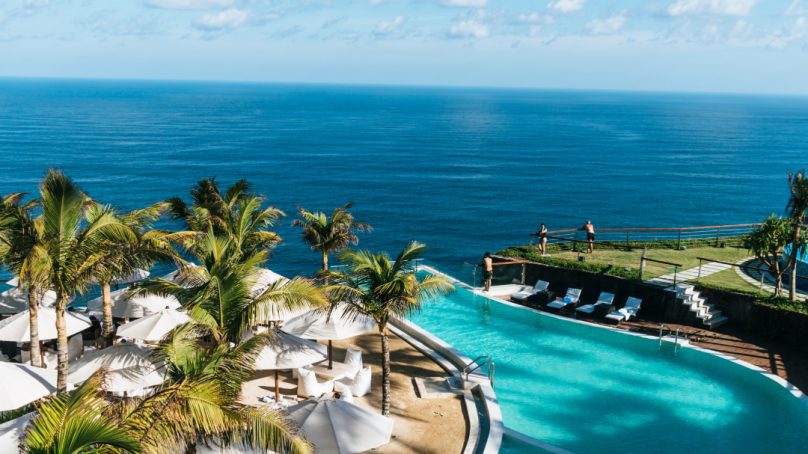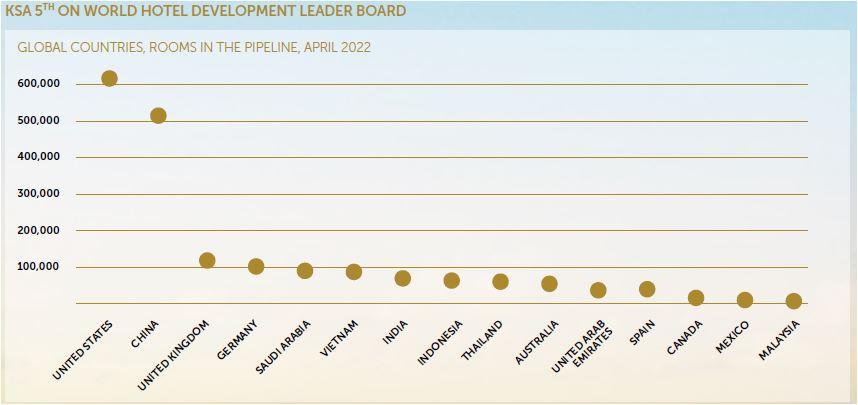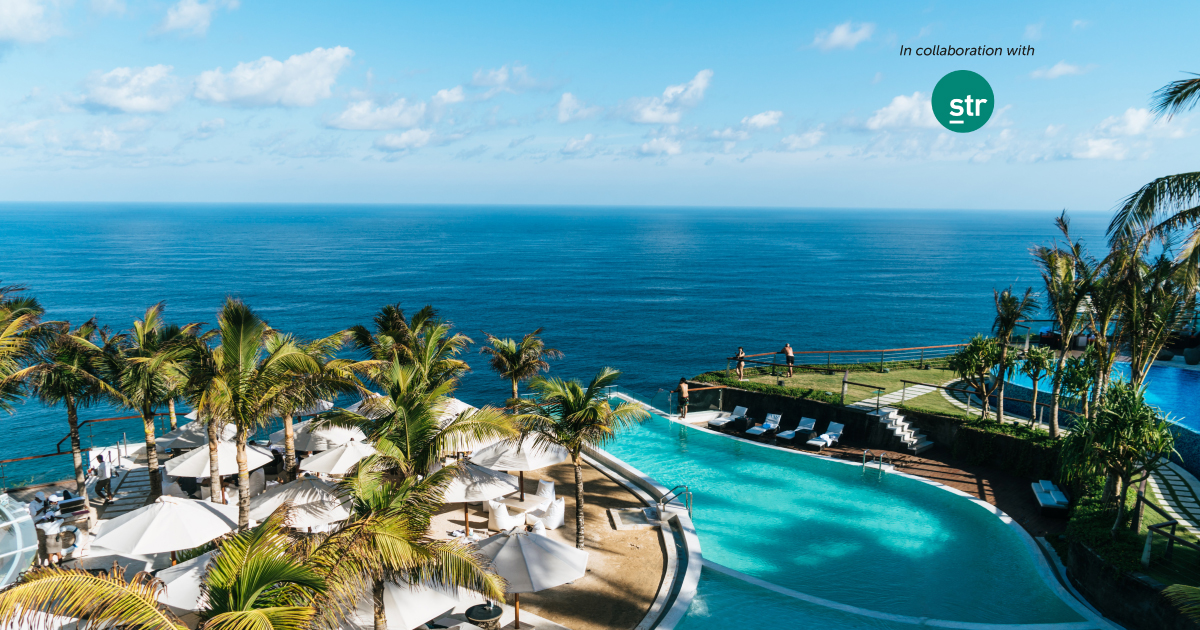
It has been suggested that the GCC — the region that never sleeps — offers the most exciting, record-breaking, fastest-evolving hotel landscape that has ever existed. The tremendous growth the region has become known for is confirmed in the numbers. Hotel inventory in 2010 amounted to almost 231,000 rooms, while 12 years later, it has grown to a whopping 406,608, representing growth of 76 percent. During this period, hotels opened, closed, were renovated, reopened and experienced rebranding.
Forecast for 2022
In 2022, with the Covid-19 pandemic largely behind us, it is encouraging to see GCC countries still on the global hotel development leader board. With a pipeline of 80,745 rooms, Saudi Arabia currently ranks fifth globally, with the largest number of hotel rooms under development. Meanwhile, the neighboring UAE still places high on the list, with 45,552 rooms. While these numbers might look small in comparison to the global heavyweights of China and the U.S., each boasting more than half a million rooms in the pipeline, they are no doubt big enough to continue to redefine the hotel landscape of the GCC, a testament to the vision, stability and ability of the region to attract hotel investment.
The case of Saudi Arabia
In Saudi Arabia, the list of tourism projects and new destinations continues to expand, with new hotels slated for Amaala, Diriyah, Qiddiya, Al Ula and elsewhere. Meanwhile, flagship projects, like the The Red Sea Project, are edging closer to completion, with announcements for resorts from global brands like Marriott Edition, Jumeirah and Six Senses. The Red Sea Project, together with Amaala and eventually NEOM, are bound to not only reshape the western Saudi coastline but also the wider regional tourism flows. Despite the 16,000-plus hotel rooms currently under contract in regional Saudi Arabia, major urban centers, like Riyadh, Jeddah and Makkah, are also experiencing growth, with a combined total of 142 hotel projects and 54,188 rooms in the works.
UAE
Meanwhile, the UAE, which has already added approximately 91,000 rooms to its inventory since 2010, is looking to further leverage the legacy of Expo 2020 and the impressive resilience shown by its tourism industry during the pandemic. Underpinning the country’s success as one of the most attractive investment destinations are record foreign direct investment inflows, amounting to USD 20.7 billion in 2021 (according to the Investment Report 2022). Dubai, with a pipeline of 114 hotels and 35,930 rooms, has maintained momentum after Expo 2020. Upcoming flagship properties, including the Royal Atlantis and The Lana, Dorchester Collection, are expected to not only add more keys but also provide additional glitz and glamour to the extremely competitive Dubai luxury hotel landscape. Significant inventory across lower hotel classes is also expected to materialize, adding further depth to the already mature tourism product.
It is of significance that after successfully dealing with the pandemic, the hotel and tourism industry in the region is showing no signs of slowing down. Despite everything that has happened recently, megaprojects and megacities are still very much on the agenda.

Kostas Nicolaidis
Middle East & Africa Executive
STR















